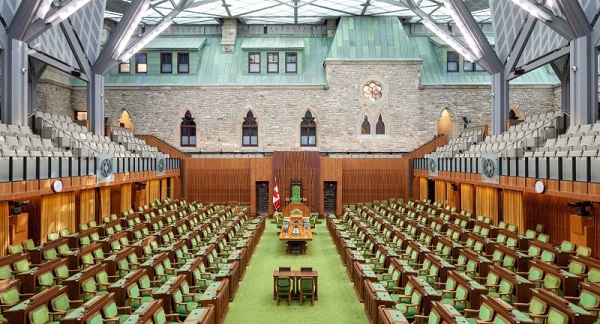Business
LEGO to invest $366 million on major U.S. expansion

Quick Hit:
The LEGO Group is expanding its U.S. footprint with a $366 million investment to build a 2-million-square-foot warehouse in Virginia. The move will create 305 new jobs and deepen the company’s commitment to the United States.
Key Details:
-
The new warehouse and distribution center will be built in Prince George County, complementing LEGO’s upcoming factory in neighboring Chesterfield County that’s set to open in 2027.
-
Virginia secured the project through a $2.53 million Commonwealth Opportunity Fund grant, with additional support from state programs including the Virginia Jobs Investment Program and the Port of Virginia’s economic development incentives.
-
LEGO’s Chief Operations Officer Carsten Rasmussen said the center will “bring greater flexibility” to the company’s North American supply chain and reduce both customer wait times and environmental impact.

Diving
LEGO is expanding in Virginia! This new $366M investment in Prince George County creates 305 new jobs, strengthening our partnership and Virginia’s status as the top state for business. Virginia is where global companies and iconic brands like @LEGO_group can thrive, grow, and… pic.twitter.com/6rzydVIlRZ
— Glenn Youngkin (@GlennYoungkin) May 8, 2025
Deeper:
The LEGO Group will invest $366 million to build a 2 million-square-foot warehouse and distribution center in Prince George County, Virginia, a move expected to create 305 new jobs, according to a Thursday announcement by Governor Glenn Youngkin.
The project marks another milestone in LEGO’s ongoing U.S. expansion, following the 2022 announcement of its Chesterfield County factory currently under construction. The company’s operations in Virginia are projected to create more than 2,000 jobs total when both sites are fully up and running.
“The LEGO Group is not just a household name, it’s a symbol of creativity, innovation, and quality that resonates globally,” said Governor Youngkin. “Three years after choosing Virginia to establish its U.S. manufacturing plant, the LEGO Group’s decision to expand into Prince George County is an exciting new chapter in this partnership.”
LEGO’s global Chief Operations Officer, Carsten Rasmussen, said the regional distribution center “will shorten our supply chain in the region–reducing lead times for our customers as well as our environmental impact.” He praised the continued partnership with the Commonwealth.
State economic officials credited Virginia’s workforce and infrastructure for helping land the deal. “This investment brings high-quality jobs to Prince George County and reflects our broader commitment to building healthy, vibrant communities,” said Secretary of Commerce and Trade Juan Pablo Segura.
Virginia lawmakers representing the area praised the announcement. State Senator Lashrecse Aird said the investment means “new opportunities for families and a stronger foundation for our community.” Delegate Carrie Coyner echoed that sentiment, calling it “a testament to the kind of community we’ve built.”
Business
From ‘Elbows Up’ To ‘Thumbs Up’
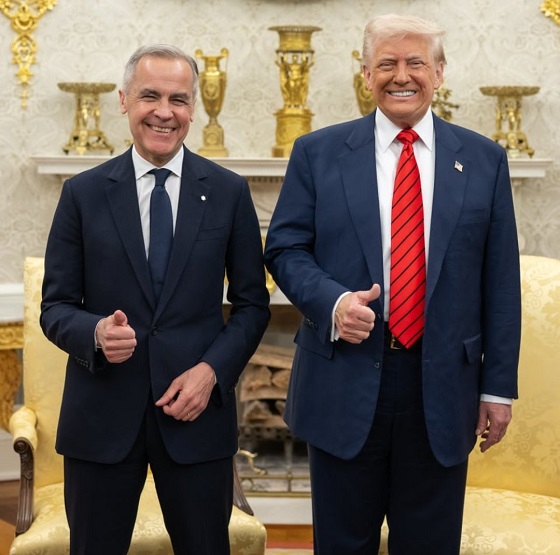
From the National Citizens Coalition
National Citizens Coalition Slams Carney-Trump Meeting as ‘Insulting’ About-Face After Fear-Mongering Campaign Rhetoric
CANADA – From “elbows up” to thumbs up in record time.
The National Citizens Coalition (NCC) condemns Prime Minister Mark Carney’s cozy meeting with U.S. President Donald Trump, calling it a stark contradiction of the anti-American rhetoric that fueled Carney’s election campaign. The NCC asserts that Carney’s deferential White House visit undermines the combative pledges made to Canadians, revealing how the Liberals leveraged Trump’s tacit endorsement and the ‘Rally Around the Flag effect’ to secure their minority government.
During the April 2025 federal election, Carney and the Liberal Party campaigned on a platform of staunch resistance to Trump’s trade war and his provocative “51st state” rhetoric, inflaming tensions by warning that Trump sought to “break us so America can own us.” This messaging galvanized voters on the left, particularly the collapsing NDP base and many over-55s, with polls showing a surge in Liberal support driven entirely by anti-Trump sentiment. Yet, just days after securing victory, Carney’s decision to behave in stark contrast to such rhetoric betrays the trust of Canadians who believed in his hardline stance, and in particular, betrays the young Canadians who voted in defiance of “51st state” nonsense and American election interference, but who also had major additional priorities that have been ignored by a decade of Liberal ruin.
“Mark Carney sold Canadians a story of aggressive defiance against Trump, but this meeting proves he’s more interested in reaping the rewards than holding convictions,” says NCC President Peter Coleman. “Carney’s campaign leaned heavily on fearmongering about Trump, yet here he is shaking hands, laughing, and all but sitting idly by as he’s insulted, with the very man he claimed threatened our sovereignty. This isn’t leadership—it’s hypocrisy.”
The NCC contends that Trump’s public comments, including his refusal to rule out making Canada the 51st state, however flippant the bargaining tactic, were strategically exploited by the Liberals to consolidate left-leaning voters fearful of Conservative leader Pierre Poilievre’s perceived Trump-like style.
“Trump’s shadow loomed large over this election, and the Liberals milked it for every vote,” Coleman adds. “Canadians deserve to know if Carney’s tough talk was just a ploy to ride anti-Trump sentiment to power, only to cozy up to him afterward. This smells like a backroom deal between the two, that benefited the Liberals at the expense of much-needed hope and change, and honest and ethical conversations about the need for renewed pride in who we are, and a return to Canadian sovereignty.”
The NCC demands Carney explain how this meeting aligns with his fear-mongering on the campaign trail. Canadians deserve transparency about more of Carney’s true motives, which also may not match his statements and behaviours to date.
The National Citizens Coalition calls on all Canadians to hold Carney accountable for this cynical about-face. “We will not stand idly by while Carney exploits sovereignty concerns and election interference for political points,” Coleman concludes. “If this level of decorum had been any kind of consistent, if he hadn’t just run a fearful, pandemic-style campaign that robbed so many Canadians of hope and further inflamed alienation in the West, that’s one thing. But it’s time to reclaim the Canadian Dream from low-cunning leaders who say one thing and do another. He may be better house-broken than Trudeau, and on that, there is room for faint praise. But who really is Mark Carney? Why did the legacy media seem so disinterested in vetting him? And what does he really believe?”
About the National Citizens Coalition: Founded in 1967, the National Citizens Coalition is Canada’s pioneer non-profit conservative organization, dedicated to championing common-sense values, defending taxpayer interests, and promoting a strong, proud, and free Canada.
Business
Carney must work to grow Canada’s economic pie
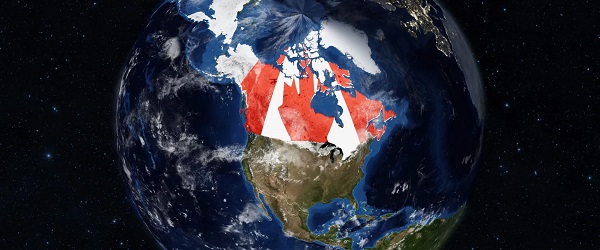
From the Fraser Institute
After scoring a narrow victory in the federal election, Prime Minister Mark Carney and his incoming cabinet will confront a host of pressing issues. Dealing with the erratic and sometimes menacing Donald Trump—and navigating the multi-front tariff war the U.S. president has launched—is undoubtedly job one. Meanwhile, the refreshed Liberal government will face an enfeebled Canadian economy that may be on the cusp of a recession triggered by Trump’s mad-cap trade policies and dwindling economic growth across much of the world. Finding ways to implement—and pay for—the grab-bag of costly promises in the Liberal Party’s election platform will also tax the abilities of Carney and his ministers.
Beyond the immediate imperative of managing relations with the United States, the top priority for the Carney team must be creating the conditions for stronger economic growth at home. Under Justin Trudeau, the Liberal government was preoccupied with social policy, income redistribution, climate change and Indigenous reconciliation. As former finance minister Bill Morneau has written, Trudeau displayed zero interest in bolstering the underlying foundations of Canadian prosperity, which languished on his watch. Hopefully, Carney’s administration won’t make the same mistake.
Unfortunately, team Carney starts with a weak economic hand. Canada has been losing global market share in almost all of our export-oriented industries. Productivity is stagnant, and business investment is insufficient even to offset ongoing deprecation of the “capital stock”—the buildings, equipment and machinery owned and used by firms across Canada. Net foreign direct investment flows have turned sharply negative, with Canadian firms investing more abroad than foreign companies invest in Canada—a clear sign of our waning competitiveness.
Even more worryingly, Canada’s real gross domestic product (GDP) per person—the total income that households and businesses generate, divided by the population—shrank by 1 per cent between 2018 and 2023, before dipping again last year. During this time period, we’ve been near the bottom among 38 advanced countries on this basic metric of economic success and living standards.
In fact, Canada’s economy today is scarcely larger than it was a decade ago (after adjusting for population growth and inflation). Comparisons with the U.S. make for particularly painful reading. Between the first quarter of 2016 and the fourth quarter of last year, inflation-adjusted per-person economic output grew by just 2.5 per cent in Canada compared to 18.7 per cent in the U.S. This speaks both to the economic failures of the Trudeau era and the urgent need for Ottawa to change course.
So, what to do?
Turning around Canada’s lacklustre economy will require a sharp turn away from the policies of the Trudeau era. Instead of serially expanding the size, cost and administrative reach of the government sector, federal policymakers should look to kick-start business investment, improve Canada’s global competitive position, accelerate business innovation, and scale back the regulatory chokehold that has been stifling business growth in key sectors of our economy including natural resources, manufacturing and infrastructure development. Progress in these areas will require a significant overhaul of Canada’s creaky growth-inhibiting tax system, a commitment to smarter and more efficient regulation across the government sector, and more disciplined and thoughtful management of Ottawa’s $550 billion in annual spending.
Is the Carney government up to the task? Its first budget, likely to be tabled within the next few weeks, should provide some initial clues.
-
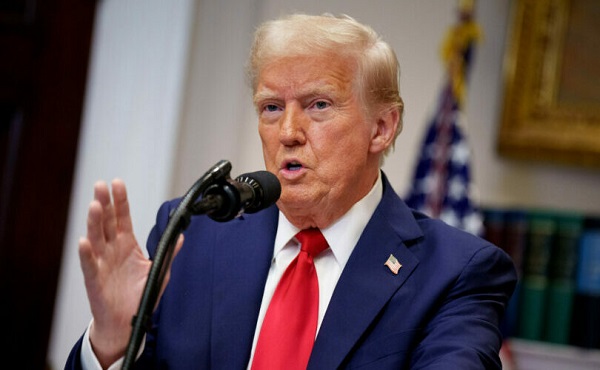
 Business2 days ago
Business2 days agoTrump announces UK will fast-track American products under new deal
-
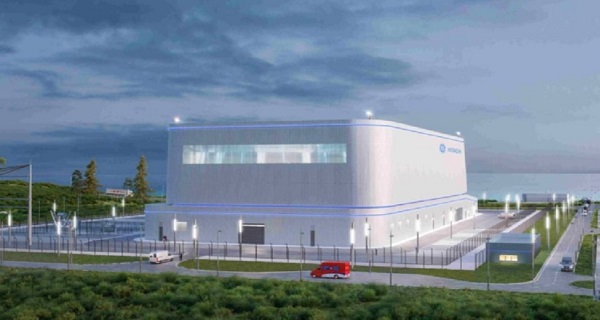
 Energy2 days ago
Energy2 days agoOntario Leads the G7 by Building First Small Modular Reactor
-
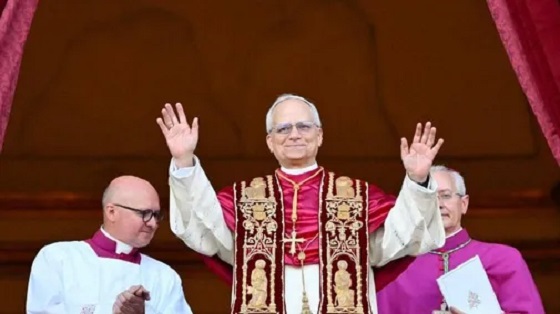
 International1 day ago
International1 day agoFirst American pontiff says ‘build bridges’ to peace
-
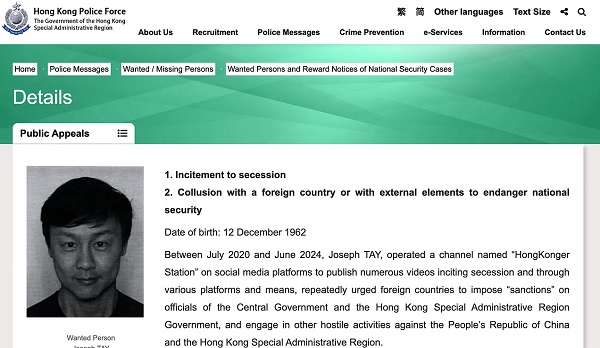
 espionage2 days ago
espionage2 days agoHong Kong Police Detain Relatives of Canadian Candidate Targeted by Beijing Election Interference
-
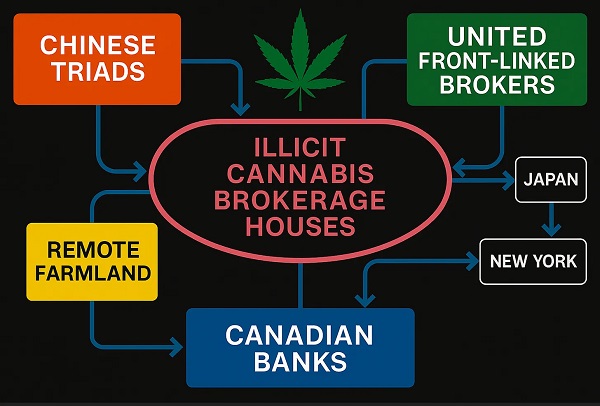
 Crime1 day ago
Crime1 day agoHow the CCP’s United Front Turned Canada’s Legal Cannabis Market into a Global Narcotics Brokerage Network
-
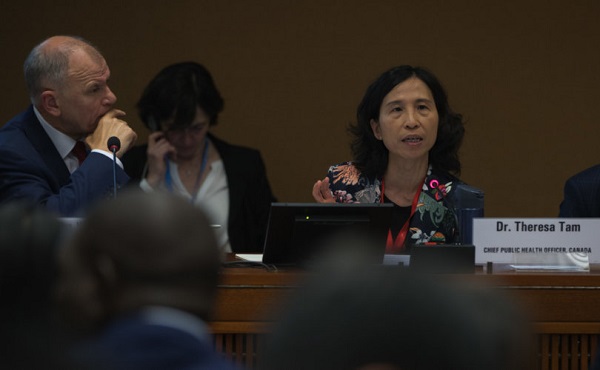
 COVID-191 day ago
COVID-191 day agoCanada’s top doctor signed oath to withhold COVID info that could ‘embarrass’ Trudeau’s cabinet: records
-
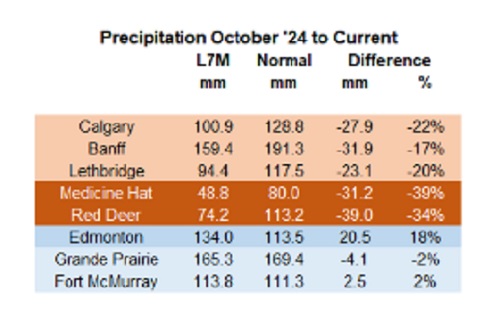
 Alberta1 day ago
Alberta1 day agoAlberta Precipitation Update
-
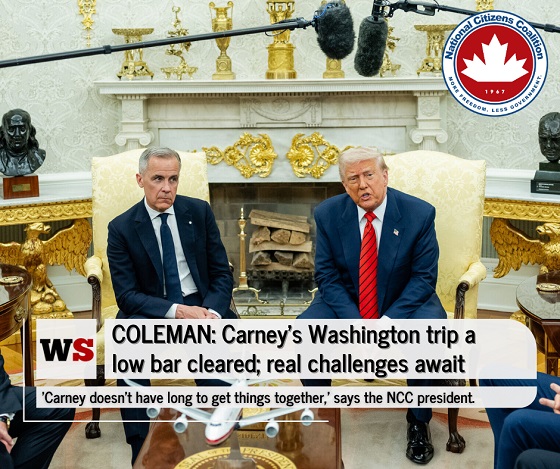
 Business21 hours ago
Business21 hours agoReal Challenges Await Carney







